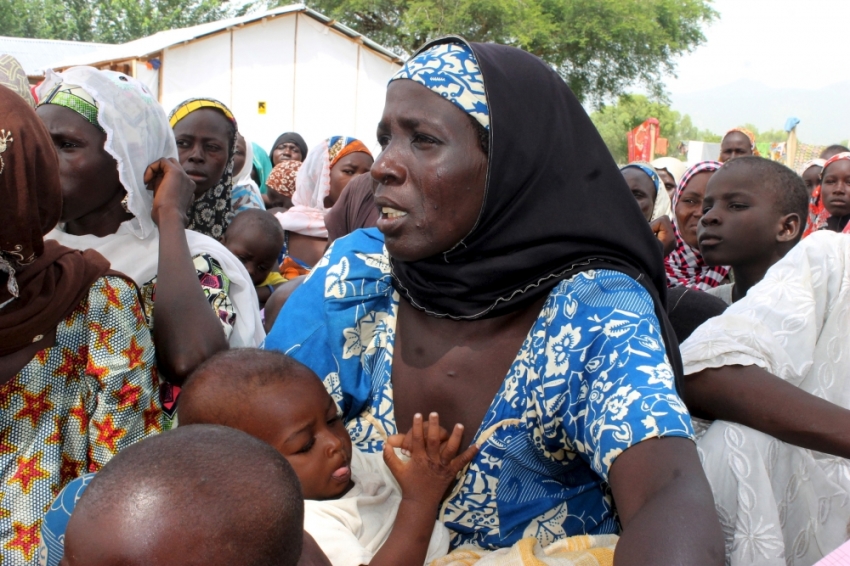134 Children Are Dying Every Day in Nigeria From Malnutrition Due to Boko Haram, UNICEF Warns

There are 240,000 children in Nigeria suffering from acute malnutrition and facing a high risk of death due to the terror actions of Boko Haram, the United Nations' children's agency has warned, with the crisis taking 134 children's lives a day.
"Some 134 children on average will die every day from causes linked to acute malnutrition if the response is not scaled up quickly," said Manuel Fontaine, UNICEF regional director for Western and Central Africa, who visited Borno state.
"We need all partners and donors to step forward to prevent any more children from dying. No one can take on a crisis of this scale alone."
Fides News Agency added that 240,000 children are suffering and are at a high risk of death in Borno State, Nigeria, where much of the fighting between government forces and the Islamic radical group has taken place.
Boko Haram has been attacking towns and villages in the northern parts of the country since 2009, seeking to drive out all Christians, although a prolonged military campaign has driven it out of some areas.
Fides noted, however, that as troops regain control of regions, the true extent of the food crisis is being exposed.
"Places that are now possible to enter have a bleak picture: completely destroyed cities which host displaced people with no adequate sanitation, water or food. Humanitarian organizations unfortunately do not have access to almost 2 million people living in unsafe areas," the report said.
It added that Boko Haram has killed more than 12,000 people since 2009, according to government sources, though other estimates report the figure is more than double that.
What is more, another 2.5 million people have been forced to flee their homes as internally displaced persons, with the conflict also creating a growing refugee crisis in the region.
International nonprofits, such as the medical charity MSF, have documented the starvation crisis. Back in June, MSF reported that more than 1,200 graves were found near a refugee camp for people who had fled their homes to escape Boko Haram.
"This is the first time MSF has been able to access [the town of] Bama, but we already know the needs of the people there are beyond critical," said Ghada Hatim, MSF head of mission in Nigeria.
"We are treating malnourished children in medical facilities in Maiduguri and see the trauma on the faces of our patients who have witnessed and survived many horrors."
U.S.-based organizations, such as the 21st Century Wilberforce Initiative, have meanwhile called on President Barack Obama to create a Special Envoy for Nigeria and the Lake Chad Region that would directly help IDPs receive the help that they need.
Former Congressman Frank Wolf told The Christian Post in an interview that the special envoy is crucially needed in the region, and revealed that many of the suffering Christians are looking to Western churches for help as well.
"People of faith, Christians, feel very much forgotten. Nigeria is fractured and is breaking down in so many ways, and it seems that the world has forgotten about it," Wolf told CP about his interactions with Christians at a trip to Nigeria in February.
"They feel abandoned by the West, and by the Church in the West. You are not hearing many in the West advocating (for them). They would expect that the faith community in the West, Europe, would be advocating, speaking out," he added.



























